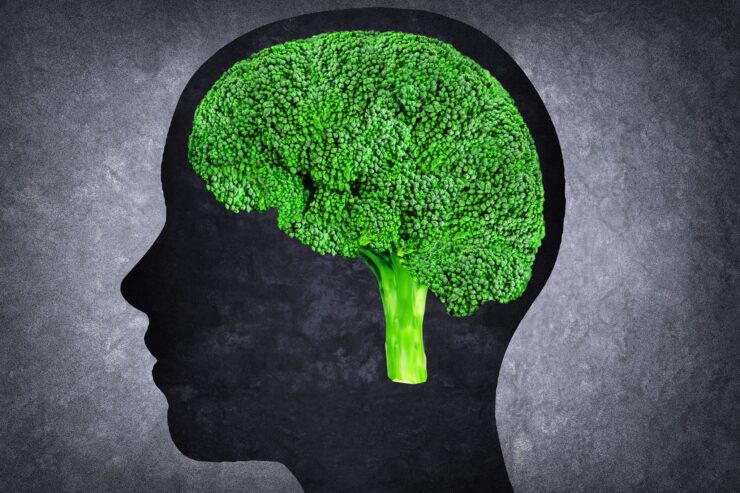People diagnosed with schizophrenia are known to experience delusions and hallucinations that have a severe impact on their everyday life. Although medicine is progressing by leaps and bounds, it is hard to find the perfect treatment for schizophrenia.
Currently, doctors rely on antipsychotic drugs to treat schizophrenia. However, these antipsychotic drugs come with their own side effects and might do more harm than good. However, a newly concluded research has brought to light that the sulforaphane chemical can reduce and even prevent the symptoms of this mental health condition.
As a matter of fact, the World Health Organization (WHO) stated that while 21 million people are diagnosed with schizophrenia all over the world, more than half of these patients do not receive the proper care needed to keep the symptoms in check.
While drugs are the common mode of treatment, they do not work for everyone with schizophrenia. Moreover, as stated earlier, these drugs come with quite a few side effects, including a cardiovascular health condition commonly called “the shakes”.
Can Broccoli Sprout Extracts Help Restore Brain Chemistry Associated with Schizophrenia?
Recently, researchers from the John Hopkins Schizophrenia Center in Baltimore published a series of studies involving animals and humans, where they claimed to have identified certain glutamate-related chemical imbalances in the brains of patients diagnosed with schizophrenia. They also stated that Sulforaphane, a compound obtained from broccoli sprout extract, has the potential to reverse the chemical imbalances in the brains of schizophrenia patients.
Based on the results of the studies, researchers are hopeful that the broccoli sprout extracts containing sulforaphane will allow doctors to lower the dose of the antipsychotic drugs used to manage the symptoms of schizophrenia, thus reducing the potential side effects of these medicines.
Differences in Brain Metabolism Between Schizophrenic Patients and the Healthy Control Group
In the first stage of the study, the research team studied the differences in brain metabolism between a control group of healthy people and patients with schizophrenia. The findings of this study were published in the journal JAMA Psychiatry.
While 81 patients from the John Hopkins Schizophrenia Center were involved in this study, 91 people from the community with healthy brain function were roped in to serve as the control group. The average age of the participants was 22 years and 58 percent of them were men.
A powerful magnet was used by the researchers to measure and compare five regions in the brain of both the groups to extract magnetic resonance spectroscopy (MRS) data which identified the level of various chemicals in the brains of the participants. Further analysis of the MRS data revealed that on average the schizophrenic patients had 4 percent less glutamate in the anterior cingulate cortex region of the brain when compared to the control group.
Since the 1980s, researchers and physicians have speculated that glutamate is closely linked to the onset of schizophrenia and now they have the required evidence confirming this theory.
Incidentally, glutamate is also found in the glutathione chemical, which the researchers, conducting a recent study found that people with schizophrenia lacked in the brain’s thalamus as well as the anterior cingulate cortex.
Also, see: 9 Best Weight Loss Foods
Control and Management of the Glutamate
While the first study established the differences in brain metabolism between the healthy control group and people with psychosis, the second study focused on the management of the chemical glutamate. They also studied whether the brain uses glutathione to store the glutamate. If indeed this was the case, then the researchers also wanted to see if they could control the release and storage of glutamate when needed by using a drug.
To test this theory, the researchers decided to use the L-Buthionine sulfoximine drug on rat brain cells that stopped the functioning of an enzyme which basically transformed glutamate into glutathione. This would result in the brain using more glutamate. This action caused the nerve cells to send out more signals to other cells, successfully imitating the brain patterns of schizophrenic people.
The researchers now wanted to alter this method slightly and store the glutamate rather than coaxing the nerve cells to use it all up. To achieve this, the researchers decided to use sulforaphane, which was a chemical derived from broccoli sprout extracts. Sulforaphane has the ability to switch on a gene that can, in turn, produce more of the enzyme that is used to turn glutamate into glutathione.
When glutathione was used on the brain cells of rats, the signal sent out by the nerve cells slowed and the behavior exhibited was the opposite of what takes place inside the brains of people with schizophrenia. The findings of the second study appeared in the journal PNAS.
The last and final study attempted to recreate the effects sulforaphane, derived from broccoli sprout extracts, had on glutathione in a healthy human brain. 5 men and 2 women participated in this study and took two daily doses of sulforaphane, weighing 100-micromole, for a week in a row. The sulforaphane supplements came in the form of broccoli sprout extracts. After a week of consuming the broccoli extract supplement, the researchers examined the before and after data of three regions of the brain and found that the glutathione level had risen by 30 percent.
Also, see: 9 Tips to increase height after 25
A Potential Treatment Option on the Horizon
While broccoli sprout extracts have given new hope to patients of schizophrenia, scientists say that more research is required to determine the perfect dosage of sulforaphane, so that it can safely reduce the symptoms of hallucinations and psychosis in schizophrenic patients. The only side effect that was noticed in patients was an upset stomach, which only occurred if the individual consumed the capsule on an empty stomach. One can only hope that this new chemical obtained from broccoli sprout extracts works wonders for patients with schizophrenia.




























